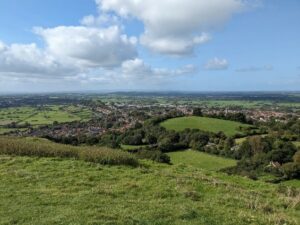Guest blog written by Professor Jane White, Vice President for Community and Inclusion:
In 2007, the UN General Assembly designated February 20 to be World Day of Social Justice #WDSJ. In doing this, the UN is showing its commitment to social justice and is helping to educate all of us about the significant inequalities in well-being, employment opportunities and justice across the globe, regionally and locally.
Earlier this month the UN Commission for Social Development (CSocD) met, as it does regularly, to discuss issues and try and find collective solutions to the highly complex challenges associated with social justice. Emerging from the 10-day meeting was a commitment to focus on supporting the development of digital accessibility and literacy. This specific focus is aligned with the more general proposal for governments across the world to work hard to find ways that they can create, and provide access to, decent jobs including for those living in rural areas.
Whilst CSocD was meeting in New York, I was actually in Malawi, one of the poorest countries in the world as measured by GDP per capita, delivering a research training workshop for applied mathematicians. I think the most useful part of the workshop was getting participants to access and use python programming online. For most, this was a new skill, and for those who had some experience of python, it was using new packages. But whatever their prior exposure to python, all participants realised how access to free software will transform how they, as mathematical modellers, can analyse and explore their model systems. What that means is that they will be able to work more effectively with policy makers and their challenges: how does flooding affect levels of Cholera in villages close to or far from large rivers? How can collapsing fish stock in Lake Malawi be best protected? Can the banana trees be protected from virus using biocontrols? At the time, I didn’t know that the Malawian representative at CSocD was advocating for exactly this type of technological development. But I was very pleased to find out that they did. And it made sense – it’s very clear that Malawi understands the importance of education and technological advance in order to improve the lives of their citizens. The challenge is finding ways to bring that about.


Left: View from Mount Mulanje, Malawi (Feb 2024), Right: View from Glastonbury Tor (Sept 2023)
(Photo credits: Kevin Lord)
Malawi is essentially a rural economy and subsistence farming is widespread. For me, it was strange to be driving through the countryside with people all around purposefully walking, cycling or tending crops. It felt quite different to when I make trips into Somerset where it would be more of an exception to see locals walking around the lanes. But there are some similarities, not simply in the view from the top of a hill or mountain (which, as you can see, is remarkably similar), but in terms of questions around social justice. As an essentially rural county, Somerset shares some challenges faced by rural communities around the globe. Somerset has a significant number of young people (aged 16-18) not in education, employment or training. And like those striving for social justice in Malawi, there are many groups in Somerset trying to find ways to improve opportunities for these young people. In my case, I’m really excited by a project that I am involved with at Yeovil College supporting their A level maths students, thanks to a philanthropic donation and Alumni Fund support.
So, I guess what I am saying is that if you are interested in social justice, then you can take your pick. Local, national, international – there is always something you might find interesting and could get involved with. And if you want to kick-start your involvement, or if you are curious about how the international community are thinking about social justice, then the UN is hosting a day of live-stream talks and discussions ILO Live - World Day of Social Justice.
Respond